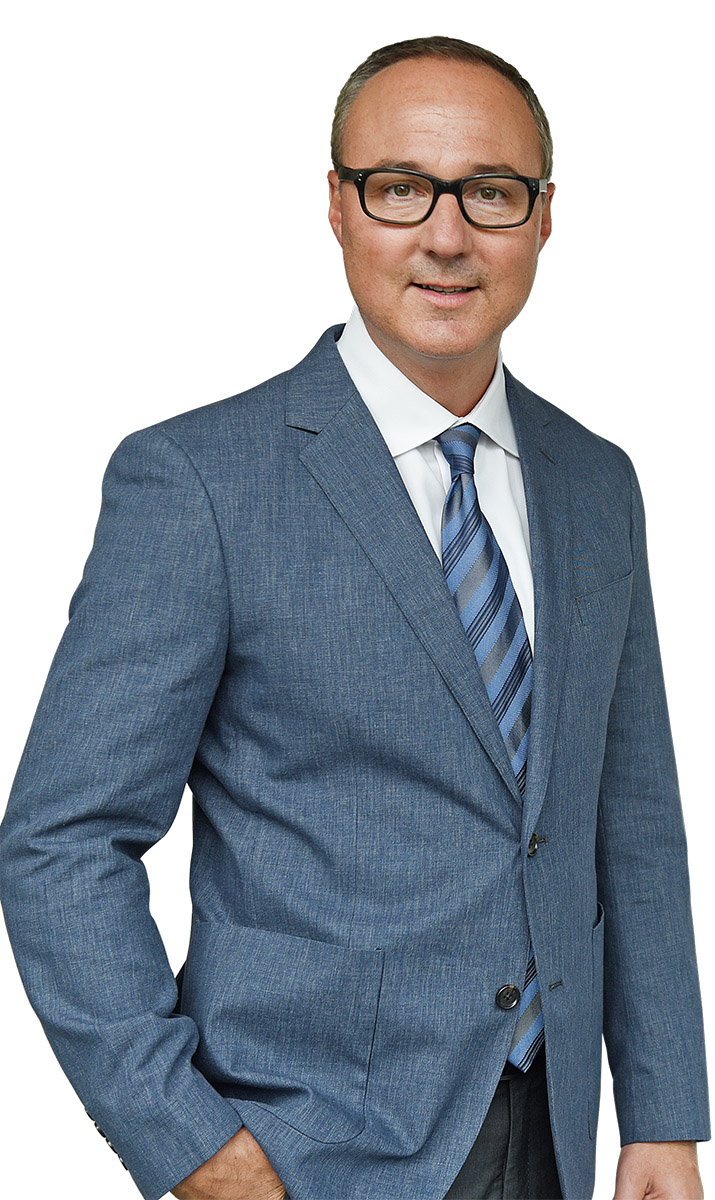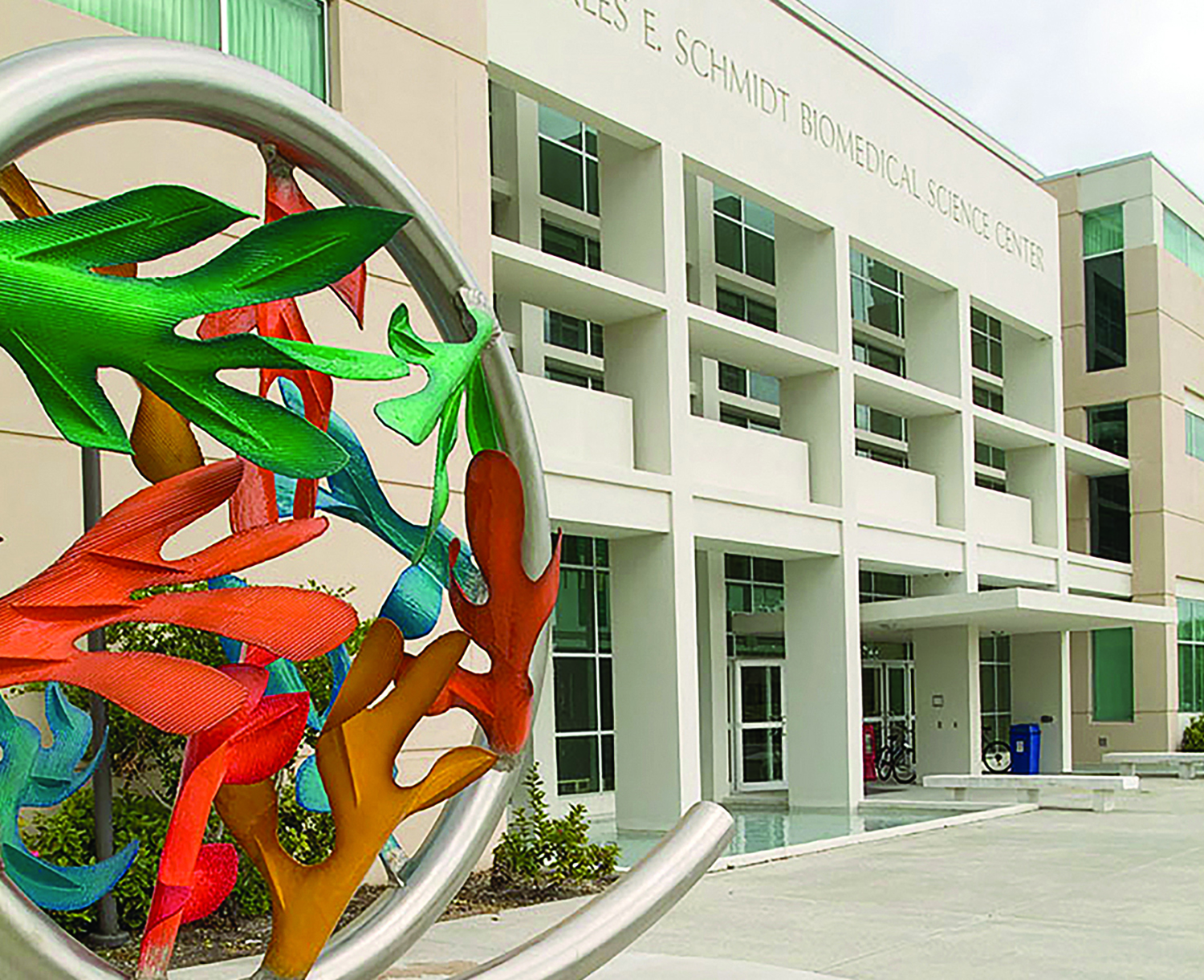Combining Three Passions to Lead the College of Medicine
A warm bedside manner may not come naturally to some physicians, but to Phillip Boiselle, M.D., the new dean of FAU's Charles E. Schmidt College of Medicine, relating to others is an innate part of who he is as a medical doctor.
As a child growing up in Fayetteville, N.C. — home to Fort Bragg, one of the world's largest Army posts — Boiselle learned that life and relationships are fluid, and that affability and openness smoothed the path to success.
"Within such a dynamic and diverse community, it was important to develop the skills to successfully connect with people from a variety of different backgrounds," said Boiselle, whose father spent his career in the Army.
As an undergraduate at the University of North Carolina at Chapel Hill, Boiselle said he had "a duality of interests in arts and science," both of which he felt could be fulfilled in medicine. Boiselle took a nontraditional route. He double- majored in chemistry and communications, a decision that paid off more than even Boiselle could have imagined.
"I rely on what I learned as a communications major every single day," he said. "I had no idea at the time that the study of communication would have such a profound influence on my leadership abilities and skills. Being an effective communicator is critical to creating successful collaborations, to being able to present ideas in ways that diverse groups of stakeholders can understand and embrace them. I'm very grateful for that education."
Boiselle didn't travel far for medical school. At Duke University, in nearby Durham, he was drawn to the school's small class sizes and its innovative curriculum.
"Many schools are now adopting Duke's approach early on, in terms of integrating the curriculum and early exposure to clinical experiences along with opportunities to pursue other electives and research," according to Boiselle.
From Yale to Harvard
Like Duke, Yale University, where Boiselle did his residency in diagnostic radiology, appealed to him for its small residency class size and "intensive, one-on-one interaction with faculty and mentoring opportunities," he explained.
After completing his residency at Yale, Boiselle moved to Boston and Harvard Medical School, becoming a professor of radiology and a member of the Cardiothoracic Imaging Division at Beth Israel Deaconess Medical Center and serving as the school's associate dean for academic and clinical affairs.
In addition to Harvard having one of the world's top programs for the diagnosis and treatment of airway and lung diseases — Boiselle's research specialty — he said the quality of teaching and the unparalleled opportunities for research were big draws.
He was also able to combine his three passions — clinical care, research and teaching.
"Each is important to me, and each makes me better at doing the other," he explained. "Being actively involved in clinical care allows me to be a more effective teacher, and it also helps me to identify research questions that have the potential to positively affect patient care."

Undaunted by Challenges
Boiselle sees enormous opportunities ahead as he prepares to lead FAU's College of Medicine during a time of pivotal growth. The school's inaugural class of medical students was admitted in 2011.
John Newcomer, M.D., the college's vice dean for research and innovation, and professor of integrated medical science, believes that Boiselle is the perfect person to catapult the program to top-tier status.
"Dr. Boiselle brings extensive experience and knowledge relevant to research and innovation to FAU," Newcomer said. "He has an outstanding record of highly competitive funding from the National Institutes of Health, and he is a leader in the field of thoracic imaging, including major contributions to the implementation of high-quality lung cancer screening across the U.S. He is an outstanding addition to the growth and success of our research mission at FAU."
As he assumes leadership, Boiselle says he has three major goals: to build on the medical school's innovative curriculum development, to expand the graduate medical education programs in partnership with the Palm Beach County consortium hospitals, and to strategically grow the college's research in the vital areas of healthy aging and neuroscience.
Healthy aging and neuroscience are among the University's core research strengths, which are being actively leveraged to create knowledge that benefits society.
"Healthy aging and neuroscience resonate with me personally," Boiselle said. "These topics are also important for the population in Florida, across the U.S. and around the world. What a tremendous influence FAU will have as its biomedical research helps people to age more healthfully."
Boiselle is not daunted by the challenges ahead.
"One of the gifts my parents gave to me was the sense that you could do anything or be anything that you could imagine. It's just a matter of following your dreams."
If you would like more information, please contact us at dorcommunications@fau.edu.
